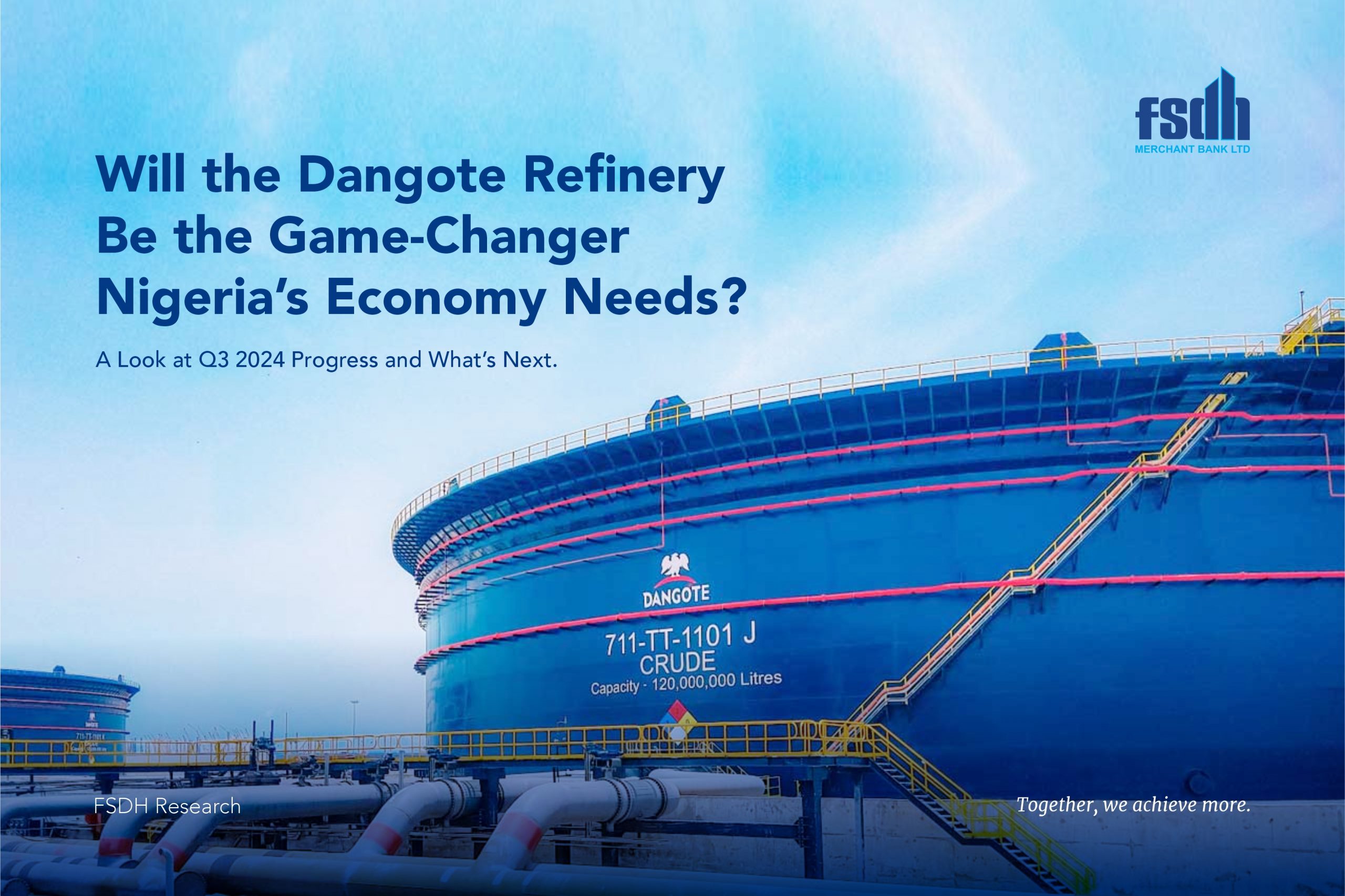As we reflect on Nigeria’s economic performance in Q3 2024, several notable developments emerge that could influence the country’s path toward stability and growth. One of the most significant factors is the impressive progress of the Dangote Refinery, inaugurated in May 2023. This facility, the largest single-train refinery in the world, aims to produce 650,000 barrels per day and meet Nigeria’s domestic demand for petrol while also generating exports. Its successful operation could drastically reduce Nigeria’s reliance on imported fuels and strengthen the economy by conserving foreign exchange and creating jobs.
In terms of overall economic growth, Nigeria’s real GDP increased to 3.19% in Q2 2024, marking a recovery from 2.98% in the previous quarter. This growth was largely fueled by the oil sector, which has been recovering since the end of 2023, thanks to efforts to combat oil theft and stabilize production levels. Alongside this, the finance sector has also contributed significantly to GDP growth, alongside moderate increases in agriculture and manufacturing.
Another positive indicator has been the decline in inflation rates, which fell to 32.15% in August 2024 from a peak of 34.19% earlier in the year. This reduction can be attributed to improved agricultural yields during the harvest season, easing food prices for consumers. However, core inflation remains a concern as businesses continue to grapple with high operating costs amid a challenging economic environment.
On the foreign exchange front, Nigeria’s currency has faced pressures, depreciating further to N1541.52/US$ by the end of Q3 2024. The year-to-date depreciation of nearly 70% highlights the need for continued efforts to stabilize the Naira. Despite this, Nigeria’s external reserves saw an uptick, reaching US$37.9 billion, bolstered by a positive trade balance and rising foreign capital inflows. The Central Bank of Nigeria (CBN) has been focused on reserve accumulation to boost confidence in the FX market, although the exchange rate outlook remains cautious as we approach the festive season.
Looking ahead, economic analysts caution that rising fuel prices could hinder growth in Q4 2024. With fuel prices exceeding N800 per litre, the potential for increased inflation looms large, necessitating proactive measures from fiscal authorities. The anticipated impact of the Dangote Refinery on fuel pricing and foreign exchange pressures may provide some relief in the long term, yet immediate challenges remain.
What this means for businesses
For businesses, the success of the Dangote Refinery could mean reduced fuel costs in the future, which would alleviate some financial pressures. Lower fuel prices can lead to decreased transportation costs, benefiting logistics companies and improving the affordability of goods. However, the immediate rise in fuel prices may prompt businesses to adjust their pricing strategies, potentially passing on costs to consumers. This could strain relationships with clients and customers if prices rise too sharply.
What this means for non-business owners
For non-business owners and average Nigerians, the impact of these economic changes is multifaceted. While lower inflation rates and the prospect of improved fuel availability may offer some respite, rising fuel prices and a depreciating currency could exacerbate the cost of living in the short term. Working professionals and salary earners may find their disposable income squeezed as they contend with higher transportation and food costs. In this climate, careful financial planning and budgeting become essential.
In the financial markets, interest rate hikes by the CBN have attracted foreign investment but have also driven down equity market performance, with the NGX All-Share Index losing 1.6% in Q3 2024. Despite these challenges, there is optimism that as investors seek dividend-paying stocks, the equity market could recover by the end of the year.
Overall, Nigeria stands at a critical juncture as it navigates these economic challenges. The success of the Dangote Refinery could be a pivotal moment for the country, promoting self-sufficiency in petroleum products and stimulating growth across various sectors. However, without addressing underlying issues such as inflation, foreign exchange stability, and infrastructure inadequacies, the potential for sustained economic recovery remains uncertain.
To dive deeper into these insights and explore the complete analysis of Nigeria’s economic outlook for Q3 2024, Read the Full Report Here.



